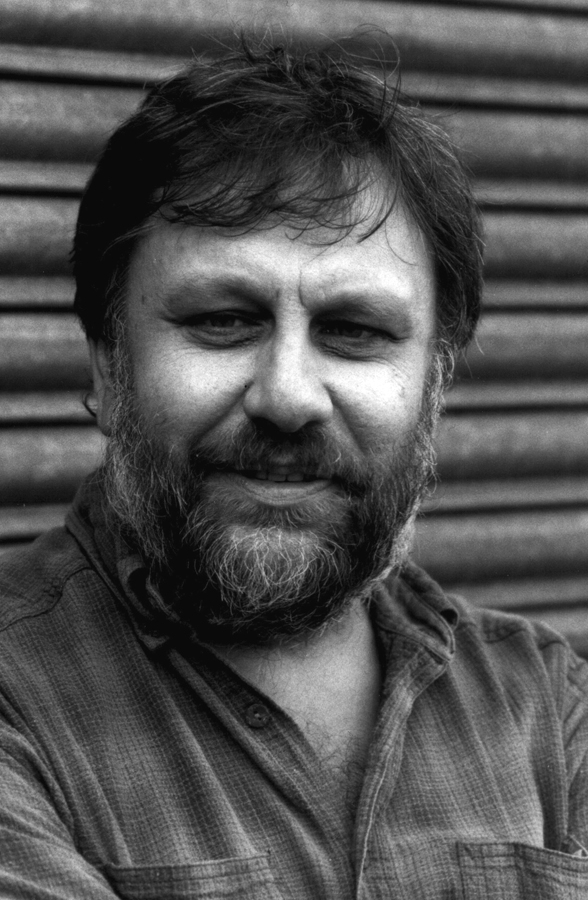In the realm of cultural theory, both Mark Fisher and Slavoj Žižek have recently observed that we live in a world that is perhaps capitalist beyond any possibility of a political or cultural conversion. Such an observation – more a call to action for the left than an admission of its defeat – underpins the commitment of some artists, such as Tania Bruguera, Chto Delat?, Oliver Ressler and Voina, to name but a few, to politically oriented art, although Žižek himself warns of the dangers of politics influenced by art.
The philosopher points in Living in the End Times (2010) to the justification that the poet has historically provided for the dictator. Yet while it could be argued that behind every dictator there is a poet or philosopher (one could think of Nero’s use of Seneca, the abuse of Neitzsche’s philosophy by the Nazi party or the closeness of Mussolini to Gabriele D’Annunzio), it could also be argued that behind every dictator there is equally a military machine, a judiciary, a political system, a belief system, a network of allies, an energy source and a food and amenities supply – and therefore a butcher, a baker and, dare we say, a proverbial candlestick maker. In short, the poet is no more responsible for the actions of the dictator, monarch or democratically elected leader than everyone else in the vast network – ie, ‘society’ – that supports them.
The poet is no more responsible for the actions of the dictator, monarch or democratically elected leader than everyone else in the vast network – ie, ‘society’ – that supports them
This is very true of state-backed capitalism – the curious compromise between statism and the free-market mentality that has predominated in the West since the global economic crisis began – with which even the most ardent leftists are complicit, given their participation in the system of exchange and taxation that supports the aforesaid compromise. This is not only due to the fact that we must all purchase items that feed back into the chain of exchange, but also because absolutely every action we undertake – for or against capital – enters into that same exchange system.
If capitalism is the world and everything in it, then the brick through the window of the chief superintendent’s car, however potent a symbol, is merely another gesture played out within that selfsame whole, feeding into its mechanisms, of insurance, judicial process, trade, etc. Ultimately, it arguably stops making sense even to talk of capitalism, for if everything is capitalist – even those few who exclude themselves from the system exist in it – there can be no capitalism, as an aberration, to speak of.
It is perhaps a fallacy to speak of ‘us’ and ‘them’ as if the left were beautiful souls made to suffer a bad world
Indeed, it is perhaps a fallacy to speak of ‘us’ and ‘them’ as if the left were beautiful souls made to suffer a bad world. No one is outside what is a social whole, and an ‘outsider mentality’ arguably serves to fence in various opposition groups and either alienate them from that social whole or make them isolated and more easily observable by a hostile media and legal system responsible for maintaining the legitimacy of the state and its relationship with ‘capital’.
One may be forgiven for thinking at this point that we are doomed to slavery at the hands of an uncaring system that is fast developing an ever more advanced system of surveillance. As true as this may be, there is something deeply unfulfilling in just sitting back and accepting a steady slide into worldwide slavery. As Theodor W. Adorno argues in his 1961 essay ‘On Commitment’, art must continue to exist in order to avoid a total ‘surrender to cynicism’.
Indeed, there is something in the abstraction of poetry, or of art in general, that can arguably resist the dry rationalist auspices of finance capital. This is not because art stands outside society, or because it has some intrinsic properties that might prove exemplary of a better way of life. Art is as complicit with capital as any other realm of society, perhaps more so given that an artwork’s only strictly utilitarian – as opposed to aesthetic – value is its resale value, whereas most other manmade objects have some useful property aside from their investment potential. Add to this the fact that the great majority of artworks made don’t have any investment value at all, and one can see just quite how useless art is. The art academies of the world are in effect adept factories for the production of landfill.
Yet it is precisely in this uselessness that art’s political calling resides. In a senseless world led by a runaway financial machine in which political and intellectual opposition is so far embedded as to make critique impossible, the uselessness of art offers a refuge. If nothing else works, at least art might, and when it invariably doesn’t, we can at least take comfort in the fact that we never really expected it to, and then try again. Many will find this hypothesis unconvincing, but for now this ‘trying’ is the best antidote some have found to the madness of an increasingly controlled world. Any more lofty assertions as to arts political capacity risk giving a false hope. Though it is in the serious, diligent and continued application of art to political ends, such as with the work of Bruguera and Ressler, that breakthroughs may be made.
This article was first published in the May 2014 issue.
